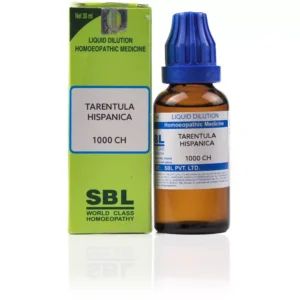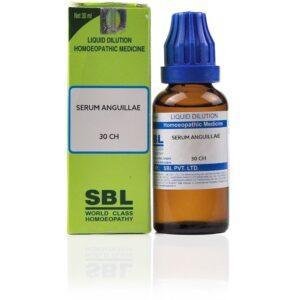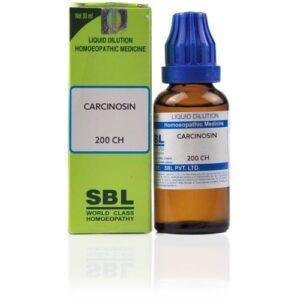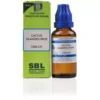No products in the cart.
SBL Cactus grandiflorus
₹66.00 – ₹228.00 (-13%)
Chest complaints, Constriction, congestion, easy clot form dissolve
SBL Cactus Grandiflorus (Night-Blooming Cereus)
Also Known As: Cactus G
Introduction to SBL Cactus Grandiflorus
SBL Cactus Grandiflorus, commonly known as Night-Blooming Cereus, is a powerful homeopathic remedy primarily indicated for congestive headaches, heart affections, and various constriction-like sensations throughout the body. Its action is especially notable for addressing conditions involving periodic pain, circulatory issues, and emotional symptoms related to heart disease.
Key Causes & Symptoms
Cactus Grandiflorus is particularly effective in conditions where constriction is a key feature, often presenting as a sensation of being caged, with an increasing tightness that feels like wires being twisted. Here are the primary symptoms it treats:
- Headaches: Periodic, congestive headaches, typically on the right side, often felt as a weight on the vertex of the head. Pulsating pain, which worsens after eating or fasting.
- Heart Conditions: Sensation of heart constriction, as if bound by an iron band, particularly during angina pectoris. Palpitations are common, often exacerbated by lying on the left side or exertion.
- Breathlessness: Difficulty breathing from the least exertion (dyspnea), often associated with heart disease.
- Congestion: The sensation of blood being irregularly distributed, with hemorrhages and the rapid formation of clots.
- Emotional Symptoms: Melancholy, sadness, and anxiety, often related to heart conditions. A pronounced fear of death and sensitivity to light and noise are common.
- Pain Characteristics: Pricking, constricting pains that radiate to the left side, especially in the back, scapula, and axilla. Pulsations are often felt in various body parts.
Symptoms typically worsen at 11 AM and 11 PM, during rest, especially on the left side, and are improved with open air and sleep.
Mental and Emotional Symptoms
- Melancholy and Sadness: A feeling of depression and despair, often linked with heart disease.
- Fear of Death: Anxiety about health, particularly heart disease, that worsens in the morning upon waking.
- Irritability and Difficulty Expressing Thoughts: The patient is often taciturn, sad, and finds it hard to express themselves clearly, particularly in writing.
- Sensitivity to External Stimuli: Increased sensitivity to light and noise.
Physical Symptoms
Head:
- Headaches: Congestive, periodical, and often right-sided, described as a weight on the vertex, or a pulsating constriction.
- Pulsation in Ears: The headache is sometimes accompanied by a sensation of pulsation in the ears and visual disturbances like dim sight.
- Nosebleeds: Often follows the headache, with facial flushing and congestion.
Throat:
- Constriction: Sensation of constriction in the esophagus, making swallowing difficult. The throat feels dry, as though burned, and requires frequent liquid intake to swallow food.
Stomach:
- Constriction and Heaviness: Sensation of tightness or pulsation in the stomach, sometimes accompanied by vomiting of blood.
Intestinal and Urinary:
- Hemorrhoids: Swollen, painful hemorrhoids, often with bleeding.
- Urinary Retention: Constriction of the bladder neck, leading to difficulty in urinating or retention of urine.
- Hemorrhages: Occurs internally, with blood clots in the urine or bowels.
Female:
- Uterine Constriction: Severe, pulsating pain in the uterus, particularly during menstruation or labor, often relieved temporarily by the passing of blood clots.
- Dysmenorrhea: Painful, constricting menstrual cramps, often accompanied by clotted menses.
Heart and Chest:
- Heart Constriction: The sensation of tightness in the chest as though bound by an iron band, common in angina pectoris.
- Palpitations: Often accompanied by pain radiating down the left arm, dyspnea, and cold sweats.
- Respiratory Distress: Difficulty breathing due to chest constriction, often worse when lying on the left side or during physical exertion.
Extremities:
- Edema: Swelling of the hands and feet, particularly in cases of heart disease.
- Numbness: Sensation of numbness in the left arm or coldness in the hands and feet.
Fever:
- Intermittent Fever: Paroxysms occurring around 11 AM, accompanied by cold sweats and hemorrhages.
- Coldness: Sensation of coldness in the back and hands, often accompanied by great anguish.
Side Effects
There are no known side effects when SBL Cactus Grandiflorus is used according to the recommended guidelines. As with all homeopathic remedies, it should be taken as prescribed by a qualified healthcare professional.
Dosage and Administration
- Liquid Form: Take 5 drops in half a cup of water, three times a day.
- Globules: Medicate the globules and take 3 times a day, or as directed by your homeopathic physician.
It is advisable to use this remedy under the guidance of a healthcare professional.
Precautions
- Meal Timing: Always maintain a gap of 15 minutes before or after meals when taking the remedy.
- Pregnancy and Breastfeeding: If you are pregnant or breastfeeding, consult with a qualified homeopathic practitioner before use.
- Avoid Tobacco and Alcohol: Refrain from consuming tobacco or alcohol while undergoing treatment with SBL Cactus Grandiflorus.
Terms and Conditions
Homeopathic remedies should always be selected based on the symptom similarity. Effectiveness may vary depending on the individual condition. We recommend consulting with your physician before purchasing this medicine. Self-medication is not advised.
Additional information
| Weight | 0.082 kg |
|---|---|
| Dimensions | 3.5 × 3.5 × 9.5 cm |

















Reviews
There are no reviews yet.